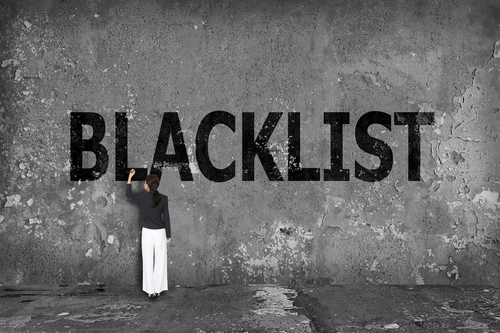
Your business website is probably one of the most important marketing and sales tools you could ever posses today. Without it you wouldn’t be able to remain competitive in a market that has adopted the internet as its main source of revenue.
This means, having your site down for hours (let alone days) could have a big impact on the bottom-line of your profits. In a world where almost everyone with a decent internet connection seeks information online and (whenever possible) shops using a connected device, you simply can’t afford to be offline.
One of the worst ways of going offline is by being forced to do so – as would be the case if you were to wake up one morning and find your site had been blacklisted by sites like Google, Bing, Norton and McAfee Site Advisor.
Typically, your website would be up and running as usual and you wouldn’t even notice anything wrong for a while. But people searching for your site wouldn’t find it in their search engine results pages (SERPs). Those that do, might be shown a warning page when they click on your link. Either way, your traffic will drop to zero unless you fix the underlying problem.
And so, let us have a look at what could cause your site to be blacklisted:
Bad Content
The number one reason your site will get blacklisted is your content. If you happen to have a website that has illegal content (porn, hacking wares, unauthorized videos for share, etc.) your site will get blocked.
Your business website should be free from such stuff, it doesn’t belong there; that is what the search engines and anti-virus software applications decide when they analyze your site.
Bad Mail Server
If you have a mail server that sends out spam and junk mail, you will find your site (both main domain and email server) blocked and blacklisted. The world has become very intolerant to spam and junk mail.
It doesn’t matter if you are filling other people’s email inboxes as part of your marketing campaign or even if your server has been hacked and your email server has been hijacked and is being misused by others – until you stop the emails leaving your servers, you will be blacklisted.
Bad Neighbors
If you happen to have your website hosted on a shared server, it could be blacklisted for no fault of yours at all. If another website that shares your server contains bad content or has a spamming mail server, their IP address will be blacklisted and even blocked.
Unfortunately for you, since you are on a shared web server you also share that same IP address. And that means, your site too will be blocked and blacklisted along with your neighbor.
Bad Virus Infection
Another common reason websites – those owned by businesses or otherwise – are blacklisted, is because of virus infections. The infection could be on your website’s host server or on the computers in your business. Either way, when people try to access your website or try to open an email that has been sent from your company, they will be notified of infected content.
The email will either automatically be deleted by anti-virus software or the intended recipients will manually do so after seeing a warning message. The next step is having your domain name, IP address, or both blocked.
Bad SSL Certificate
If your business website handles financial transactions, the very first thing you need is an SSL (Secure Socket Layer) certificate. It ensures all your transactions are encrypted and can’t be stolen en route.
As a business owner you are expected to keep track of your SSL certificate’s expiry date. Because if it does expire, your website will be blacklisted and the first thing your visitors see when they type in your URL is that dreaded warning page warning them of the fact.
Bad ISP
Your ISP provider can also have your website flagged if they think they detect suspicious traffic emanating from it.
Now that we have the reasons your site could get blacklisted, let us at what you can do rectify the situation should it happen to you:
- Always keep your content (including links) clean.
- Always use unbreakable passwords and implement strict security protocols.
- Never send email to people that don’t want it.
- If you can afford it, avoid shared hosting. If you can’t, make sure you select a hosting provider that has a reputation for secure servers.
- Always do business with hosting providers who take software updates, anti-virus and anti-malware seriously.
- Always make sure all your computers and servers are protected with the latest anti-virus software. Do not forget to constantly update them. If it is your website that is infected, take it down and replace it with a clean version – the sooner, the better.
- Your SSL certificates are critical; therefore make sure you renew them before they expire.
- Make sure you have a good relationship with your ISP. If they suspect anything, work with them to resolve the issues.
Once you have taken these measures, it is time to contact the major search engine companies to ask for a review. Most (like Google) will have your site relisted again in a matter of hours. Others like blacklist registry sites and anti-virus makers might take a little longer.



















